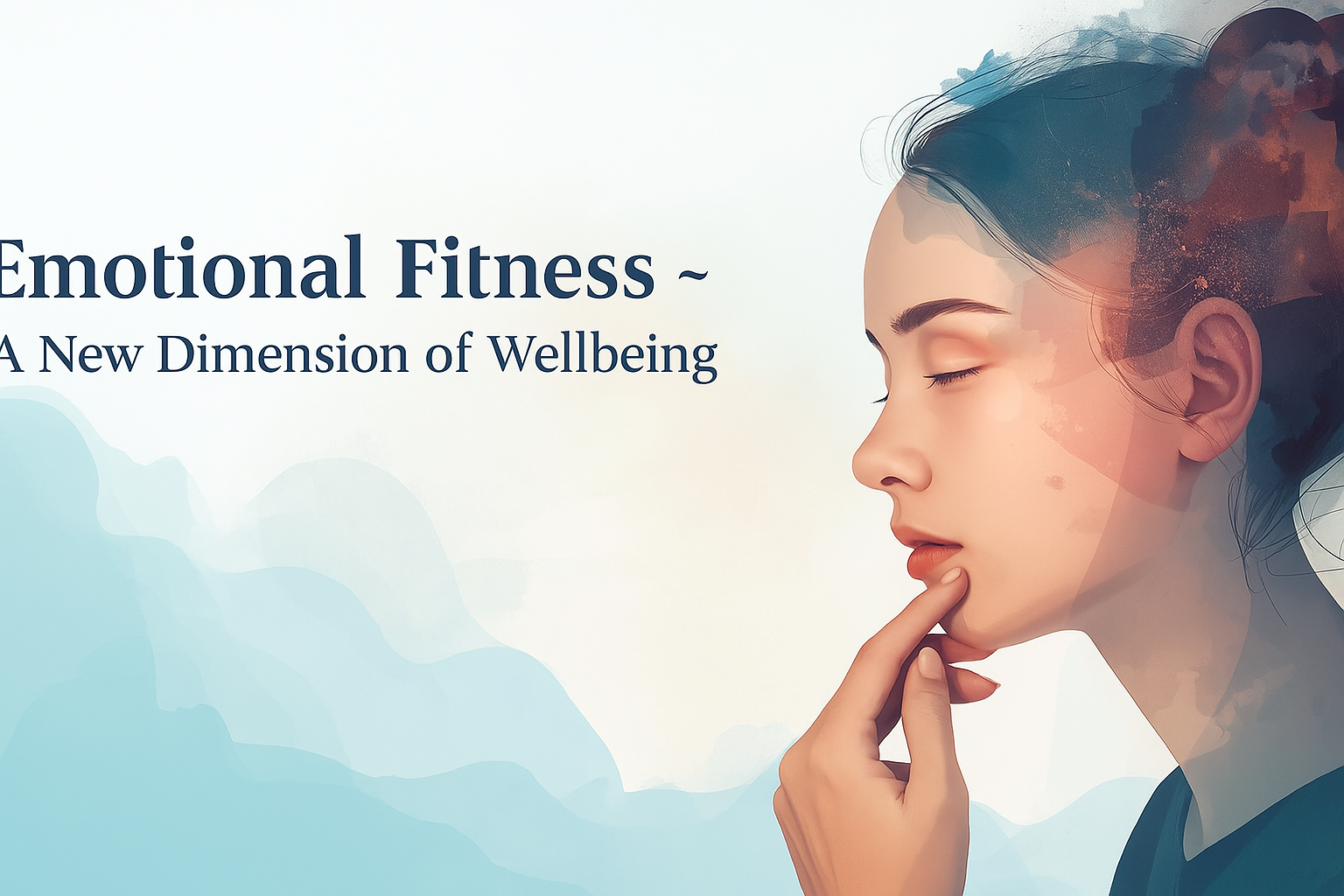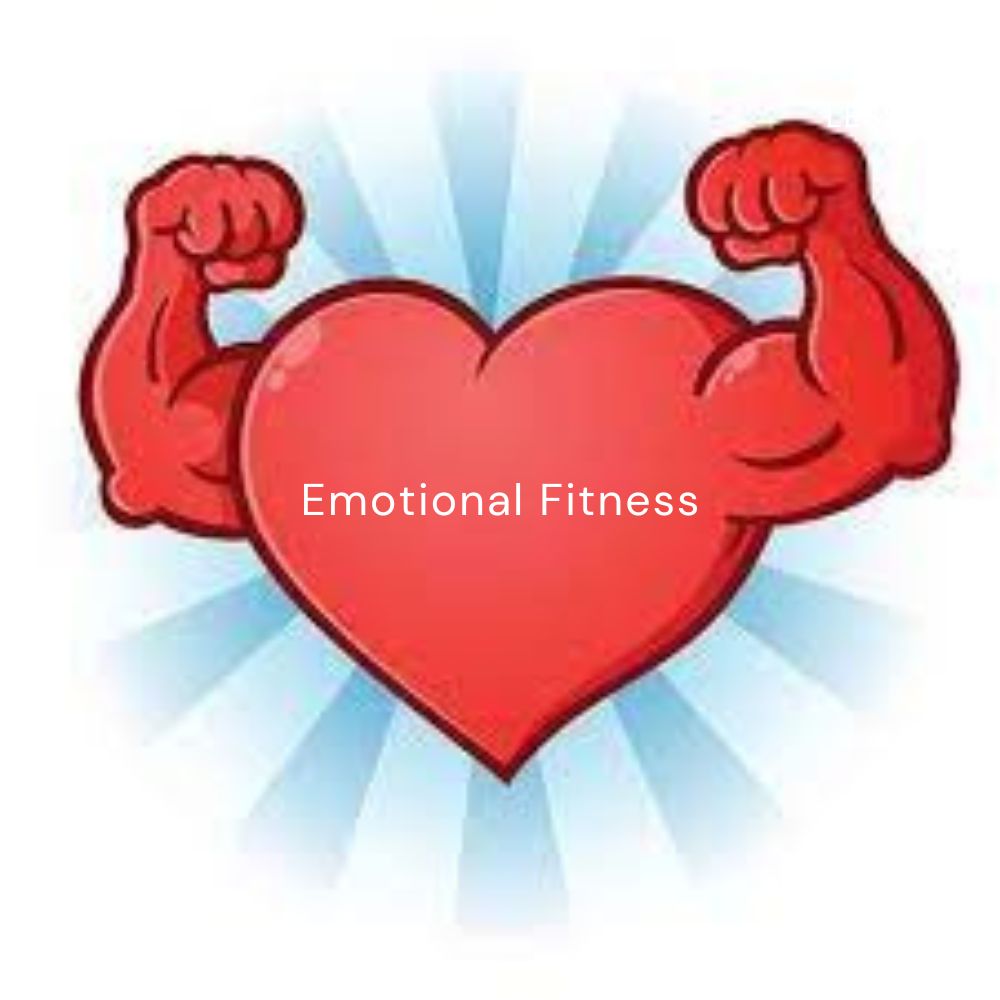Emotional Fitness — The New Dimension of Wellbeing
Introduction
In the modern world, our sense of wellbeing is not just about what we eat or how much exercise we do — it's also about how strong and balanced we feel emotionally. Emotional fitness is the new frontier in the health and wellness of our culture, providing a way to navigate life's highs and lows with more ease and self-understanding. It means getting in touch with how we feel, improving how we manage our feelings, and feeling grounded through period s of difficulty. In a similar way that physical exercise builds our body, emotional fitness is there to build our mind and heart — helping us to live with greater clarity, connection, and calm.

The Concept of Emotional Fitness: Beyond Mental Health
Emotional fitness engages more than merely being “mentally healthy.” It is about being able to identify, express, and manage our emotions in a balanced way, no matter what life throws at us. You can think of it as emotional strength training. Instead of building muscle by lifting weights, we can build resilience through emotional awareness and emotional regulation, or mastery. When we are emotionally fit, we do not get stuck in negative thoughts nor do we allow every mood shift to derail us. We become more adept at recognizing how we feel, and why we feel that way, as we act rather than react. Furthermore, it does not mean we ignore uncomfortable feelings, however, we will develop a way to respond to them calmly and mindfully. While the world often values success and supports our efforts through some external measuring stick, emotional fitness acknowledges that taking care of our inner world and staying grounded is equally important. An emotional fitness practice supports better relationships, decision-making, and overall happiness – because when our inner world is balanced, everything done on the outside also feels a little lighter.
Building Emotional Strength Through Daily Rituals
Cultivating emotional strength is just like any other kind of fitness; it doesn’t happen in an instant, but needs to be built through small, repetitious actions and good habits. There are daily habits or routines like journaling, mindfulness, or even spending a few minutes in quiet reflection that can help keep us present to ourselves. When we write, we create some clarity around whatever we’re feeling; mindfulness allows us to witness our thoughts without judgment; and, gratitude helps us shift our focus to all the things that are going right. Setting healthy boundaries and learning to say “no” when necessary are also incredibly powerful ways to maintain our emotional energy. The point isn’t to avoid stress altogether — it is to create emotional resilience. Emotional strength means progress rather than perfection. It means showing up for ourselves each day, even if it’s only for a few minutes at a time. Over time, the combination of these habits fosters emotional stability, makes us more self-aware, and less anxious. Just like we can build stamina with physical fitness, we can create balance of the emotional kind — balance that allows us to remain calm and steady amidst the unpredictability of life.

The Significance of Emotional Fitness in Life at Home, Work, and Other Situations
Emotional fitness has an immense impact on our ability to connect with other people whether it is in the home, workplace, or in a different context. When we are emotionally fit, we are better able to respond with compassion instead of judgement and deeper listening instead of reaction. The depth of our emotional awareness fosters connectivity, trust in relationships, and fewer unnecessary conflicts. When we take our capacity for emotional fitness to the workplace, we have deeper teamwork, clearer communication, and our leadership emerges from a place of emotional fitness. Someone who is emotionally fit is typically able to take feedback and adjust their thinking, remain calm in chaotic experiences, and genuinely motivate others from a place of understanding instead of authority. Emotional fitness is also critical when learning to manage stress in a high performance culture. On a personal level, emotional fitness empowers love without losing one’s self, to support another person without depleting the self. Through emotional health, we find the ability to navigate disagreements and ambiguity at work or in a personal scenario while living and leading with an emotional capacity that is grounded, kind, and focused; all character traits that will simultaneously strengthen every relationship and every workplace, and ultimately make both healthier and more humane.
Developing Emotional Fitness in the Age of Technology
Living in a time when we are perpetually connected through technology and the internet has made it more difficult for us to manage our emotional fitness. The constant scrolling of social media, notifications every few minutes, and comparing ourselves to others can quickly drain our emotional batteries. If we are always connected, it is typically more difficult for us to be aware of how we actually feel. Therefore, working on emotional fitness in today’s world must begin with being mindful about boundaries, decreasing technology usage, consuming content with awareness, and choosing connections rather than distractions. Even just short absences from technology can serve to reset our minds, as well as help us become more present and aware of the moment. It may offer some relief that thoughtful use of technology can also support our emotional fitness, whether it be meditation app, online therapist, or social communities that focus on positivity. The goal is achieving balance. When we are intentional in our use of technology rather than acting out of impulse, technology becomes a tool for growth that distracts and enables stagnation. Emotional fitness in today’s society is not just about regulating our feelings; it is about being mindful so we can take care of our peace in a world that never slows down.
Conclusion
Emotional fitness is the unassuming fortitude that sustains us through the peaks and valleys of life. It also reminds us that genuine wellness is about more than what’s happening to our bodies — it’s also about taking care of our hearts and minds. Once emotions are in check, everything else falls into place.
